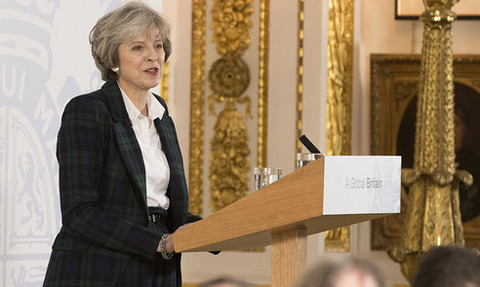Election analysis: What’s the effect for Brexit and the process industries?
9 Jun 2017

The hung parliament that has resulted from the general election has increased uncertainty over the direction of the impending EU withdrawal negotiations and their impact on the process industries.
However, the result means that there is likely to be stronger support overall among MPs for the ‘softer Brexit’ sector leaders have been demanding since the EU referendum last year.
As the last of 650 constituencies declared, the Tories are left as the largest single party in the Commons but with a reduced number of seats and short of a majority. A new Conservative government’s policy decisions will be reliant on some degree of cross-party support.
A deal with Northern Ireland’s Democratic Unionist Party gives the Tories a wafer-thin majority. Yet the narrowness of that lead tips the overall parliamentary balance in favour of those either opposed to EU pullout or advocating a softer Brexit approach.
Two outcomes affecting the process industries – one positive, one negative – emerge
Labour, Liberal Democrats and the SNP, with 308 seats, all oppose hard Brexit, together with one Green and four Plaid Cymru (Sinn Fein has another seven seats but does not participate in Westminster). However, the addition of Tory pro-Europeans brings those opposed to Brexit at any price close to a majority.
Two outcomes affecting the process industries – one positive, one negative – emerge:
On the plus side, the vote puts controversial issues such as the single market and a customs union back on the agenda and with it the prospect of gentler transition in the UK’s relationship with its European market
Less welcome is the fact that it may take still longer before the government can outline in more detail its European policy: before negotiations with the EU, it will need to embark on some deal-making with opponents in the House of Commons.
Industry responses
Terry Scuoler, chief executive, EEF: “The new Government’s priorities must radically re-focus Brexit negotiations around trade and close co-operation, ensuring a smooth exit from the EU. There are numerous ways of establishing a new relationship with the EU and, given we’ve just wasted a year, the Government needs to move away from its previous rhetoric and start repairing relations with EU partners.
“This means putting access to the single market and a form of customs union at the heart of a revised strategy, and removing the shibboleths created around a hard Brexit, which businesses know would be highly damaging for Britain.”
Northern Health Science Alliance (NHSA) CEO, Dr Hakim Yadi: “Swift, decisive action in moving forward life sciences policy is needed to make sure life sciences grows as a fundamental asset of the UK.
“An impending Brexit, the election of a new prime minister, and a general election has led to inaction on key policies, such as the Caldicott review, impacting our Health North: Connected Health Cities programme, and delaying industrial strategy implementation and science innovation audit announcements, which has held back our understanding of the North’s economic potential in life sciences.”
Food and Drink Federation director general Ian Wright: “The nation has delivered its verdict and the country demands leadership at this uncertain time. Politicians across all the parties must come together to deliver in the national interest, so the UK's £110 billion food and farming industry can continue to thrive. The Brexit clock is ticking loudly and the country will not forgive a failure to act.”
Tom Greatrex, chief executive, Nuclear Industry Association: “This election was called to resolve the direction of Brexit but its outcome has cast serious doubt over the future. In this situation, industry desperately needs clarity and the new Government, whatever form it takes, must resolve the critical and complicated Euratom issue.
“The clock is ticking towards March 2019, and without equivalent new arrangements, the exponential economic growth potential of the UK’s nuclear programme could well be lost.”

